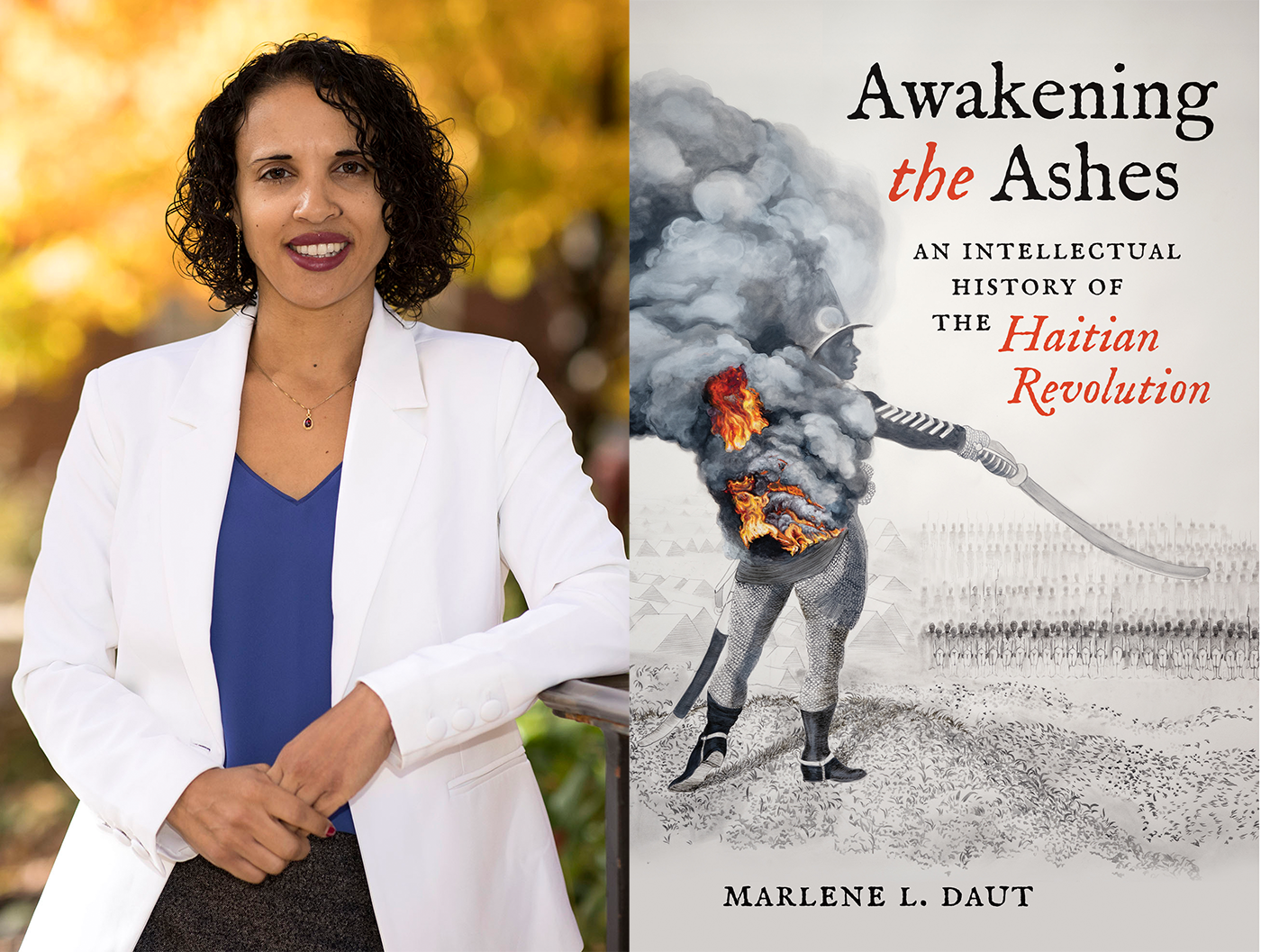Yale Announces 2024 Frederick Douglass Book Prize Winners
New Haven, Conn.— Yale University’s Gilder Lehrman Center for the Study of Slavery, Resistance, and Abolition today has announced the winners of the twenty-sixth annual Frederick Douglass Book Prize, one of the most coveted awards for the study of the African American experience.
The 2024 Prize will be shared by two scholars. The co-winners are Marlene L. Daut for “Awakening the Ashes: An Intellectual History of the Haitian Revolution” (University of North Carolina Press) and Sara E. Johnson for “Encyclopédie Noire: The Making of Moreau de Saint-Méry’s Intellectual World” (Omohundro Institute of Early American History and Culture and University of North Carolina Press).
This annual prize, jointly sponsored by the Gilder Lehrman Institute of American History in New York City and the Gilder Lehrman Center for the Study of Slavery, Resistance, and Abolition (GLC) at Yale University, recognizes the best book written in English on the topics of slavery, resistance, or abolition copyrighted in the preceding year. The $25,000 prize, shared by the two winners, will be presented to Daut and Johnson at an award ceremony sponsored by the Gilder Lehrman Institute at Trinity Church in New York City on February 11, 2025.
From a total of 82 submissions, the finalists were selected by a jury of scholars that included Amy Murrell Taylor (Chair), T. Marshall Hahn Jr. Professor of History at the University of Kentucky; Natasha J. Lightfoot, Associate Professor of History at Columbia University; and John K. Thornton, Professor of History and African American Studies at Boston University.
"These two extraordinary books,” Taylor notes, “are unique in focus but converge in the common quest to uncover the intellectual legacies of slavery and enslaved people, through wide-ranging and inventive readings of texts.” Both authors, she continues, “see in the French Caribbean, and the intellectual labors of Haitian people, the roots of modern thought about slavery and freedom, racism and colonialism."
In addition to Daut and Johnson, the other finalists for the 2024 prize were: Kerri K. Greenidge for “The Grimkes: The Legacy of Slavery in an American Family” (Liveright Publishing Corporation); and Emily A. Owens for “Consent in the Presence of Force: Sexual Violence and Black Women’s Survival in Antebellum New Orleans” (University of North Carolina Press).

Daut’s “Awakening the Ashes” recovers a voluminous body of scholarship produced by Haitian political figures, historians, and other writers. Reconstructing the internal documentation of the revolution, the book demonstrates the transcendent significance of this successful anticolonial and antislavery struggle for independence. Jury member John Thornton praised Daut’s ability to “place the revolutionaries’ ideas and actions in the context of a broad intellectual sphere.” Edward Rugemer, review committee member and Professor of History at Yale University, remarked that Daut has written “a marvelous account of a Haitian intellectual tradition that has been too long ignored by scholars in Europe and the United States.” The book, he added, offers “a brilliant retelling of the Haitian Revolution as Haitians have understood it for more than two hundred years.”
 Daniel Widener
Daniel Widener
Johnson’s “Encyclopédie Noire” is a “communal biography” of Moreau de Saint-Méry, whose writings on colonial Saint Domingue are central to the historiography of the French Caribbean. “Well-grounded in the context of eighteenth-century Atlantic World politics and culture,” this book is a serious work of interdisciplinary scholarship that “plays with form in exciting ways, with compelling historical, linguistic, and visual art elements,” observed jury member Natasha Lightfoot. “Singular in its breadth and ambition, this work offers the field a new way to configure the history of slavery,” she added. Review committee member Julian Braxton, Director of Community & Inclusion at the Winsor School, commented that he instructs his students that history is comprised of “art, music, and literature. This beautiful book is a perfect example of that approach.”
The Frederick Douglass Book Prize was established by the Gilder Lehrman Institute of American History and the Gilder Lehrman Center in 1999 to stimulate scholarship in the field by honoring outstanding accomplishments. The award is named for Frederick Douglass (1818–1895), who escaped slavery to emerge as one of the great American abolitionists, reformers, writers, and orators of the nineteenth century.
The Gilder Lehrman Center for the Study of Slavery, Resistance, and Abolition at Yale University supports academic excellence in the study of slavery and its enduring legacies, makes this knowledge freely available to the public, and fosters work toward social justice. Launched in 1998 through contributions from philanthropists Richard Gilder and Lewis E. Lehrman, the GLC is affiliated with the Whitney and Betty MacMillan Center for International and Area Studies. In addition to the book prize, the Center supports research fellowships, scholarly working groups, publications, free public programs, and educational workshops for secondary school teachers and students, domestic and international. For further information and to find out how you can support the work of the GLC, visit https://macmillan.yale.edu/glc or call (203) 432-3339.
The Gilder Lehrman Institute of American History was founded in 1994 by Richard Gilder and Lewis E. Lehrman, visionaries and lifelong supporters of American history education. The Institute is the leading nonprofit organization dedicated to K–12 history education while also serving the general public. Its mission is to promote the knowledge and understanding of American history through educational programs and resources. As a 501(c)(3) nonprofit public charity, the Gilder Lehrman Institute of American History is supported through the generosity of individuals, corporations, and foundations. The Institute’s programs have been recognized by awards from the White House, the National Endowment for the Humanities, the Organization of American Historians, the Council of Independent Colleges, and the Daughters of the American Revolution. For further information, visit gilderlehrman.org or call (646) 366-9666.